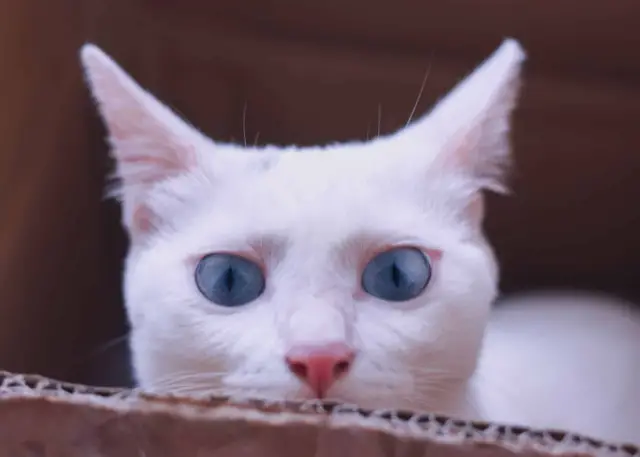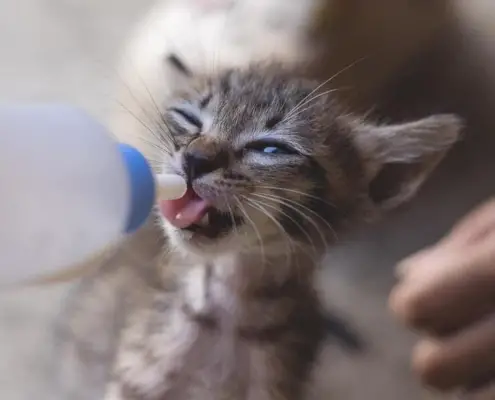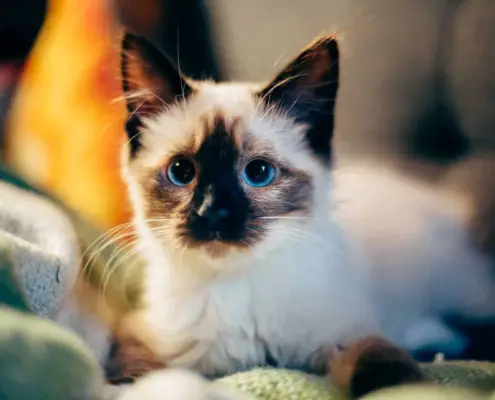
Feline behavior can sometimes be perplexing, especially when it comes to their choice of urination spots. Cats are known for their cleanliness, so it can be frustrating and concerning when they ignore the litter box and choose your bed as their pee spot. To address this issue, it is essential to delve into the reasons behind this behavior and explore potential solutions. By understanding the underlying factors, you can take appropriate steps to prevent your cat from using your bed as a toilet.
Common Reasons Why Cats Urinate Outside the Litter Box
There are numerous reasons why cats may choose to urinate outside their litter box. One common cause is a dirty or insufficiently cleaned litter box. Cats are highly sensitive to cleanliness and may avoid using a litter box that is not kept up to their standards. It is crucial to scoop the litter box daily and change the litter regularly to ensure maximum cleanliness.
Another reason for inappropriate urination is a territorial issue. Cats are naturally territorial creatures, and they often mark their territory by urinating. If they perceive a threat to their territory, such as the presence of other animals or even unfamiliar scents, they may choose to urinate on your bed to establish their dominance.
Medical Issues That Can Cause Inappropriate Urination
Sometimes, a cat’s choice to pee on your bed could be a sign of an underlying medical issue. Urinary tract infections, bladder stones, or kidney problems can cause discomfort and make it difficult for cats to control their bladder. If your cat’s behavior changes suddenly and they start urinating outside the litter box, it is essential to consult a veterinarian to rule out any medical conditions.
The Territorial Nature of Cats and Its Impact on Their Choice of Urination Spots
As mentioned earlier, cats are territorial animals, and their choice of urination spots is often influenced by their need to mark their territory. Your bed may be particularly appealing to them as it carries your scent, making it an attractive target for marking. Additionally, if you have recently introduced a new pet or even a new piece of furniture into your home, your cat may feel threatened and choose to assert their dominance by urinating on your bed.
To discourage this behavior, it is important to create a safe and secure environment for your cat. Provide them with their own designated space, such as a cozy bed or a scratching post, where they can feel secure and establish their territory. This will minimize the likelihood of them using your bed as a pee spot.
Stress and Anxiety as Contributing Factors to Inappropriate Urination
Stress and anxiety can also play a significant role in a cat’s choice of urination spots. Cats are sensitive creatures, and changes in their environment or routine can cause them to feel anxious or stressed. This can lead to inappropriate urination as a way for them to cope with their emotions.
To help alleviate stress and anxiety in your cat, it is important to maintain a stable and predictable routine. Provide them with plenty of mental and physical stimulation, such as interactive toys or regular play sessions. Additionally, consider using pheromone diffusers or calming sprays to create a soothing environment for your cat.
How to Prevent Cats from Peeing on the Bed
Preventing cats from using your bed as a pee spot requires a multi-faceted approach. Firstly, ensure that the litter box is clean and easily accessible. Scoop it daily and provide enough litter boxes for the number of cats in your household. Cats prefer to have options when it comes to their bathroom habits.
It is also important to make the bed an unattractive option for urination. You can do this by using deterrents such as aluminum foil or double-sided tape, which cats dislike walking on. Alternatively, you can place a plastic sheet or a waterproof mattress cover on your bed temporarily to protect it from potential accidents.
Steps to Take If Your Cat Continues to Pee on the Bed
If despite your efforts, your cat continues to pee on the bed, it is essential to address the issue promptly. Start by thoroughly cleaning the affected area to remove any lingering scent that may attract your cat to revisit the spot. Use an enzymatic cleaner specifically designed for pet urine to eliminate any odor.
Next, consult with your veterinarian to rule out any underlying medical issues that may be contributing to the problem. They may recommend additional tests or treatments to address any health concerns your cat may have.
Tips for Maintaining a Clean and Odor-Free Bed
Maintaining a clean and odor-free bed is crucial to prevent your cat from using it as a pee spot. Regularly wash your bedding using a pet-safe laundry detergent to remove any lingering scents. Consider using a waterproof mattress cover to protect your mattress from potential accidents.
In addition to regular cleaning, it can be helpful to provide your cat with alternative comfortable sleeping options. Invest in a cozy cat bed or a plush blanket where they can relax and feel secure. This will reduce the likelihood of them choosing your bed as their preferred spot.
Seeking Professional Help for Persistent Feline Urination Problems
If your cat’s inappropriate urination persists despite your best efforts, it may be time to seek professional help. A veterinary behaviorist or a certified animal behaviorist can provide expert guidance and develop a tailored behavior modification plan for your cat. They will assess the underlying causes of the behavior and work with you to implement appropriate solutions.
Conclusion
Understanding why your cat chooses your bed as a pee spot is essential in addressing and preventing this frustrating behavior. By considering factors such as cleanliness, territoriality, medical issues, and stress, you can take appropriate steps to discourage inappropriate urination. Remember to provide a clean and accessible litter box, create a secure environment, and seek professional help if needed. With patience and persistence, you can help your cat overcome this behavior and maintain a harmonious living environment for both of you.
If you’re struggling with your cat’s inappropriate urination habits, don’t hesitate to seek professional help. Contact a veterinary behaviorist or certified animal behaviorist to develop a personalized plan for your cat’s needs. Your cat’s health and happiness are worth the investment.
If you enjoyed my article, I would appreciate you sharing it with your network.

Sima Ndlebe
Sima writes for CatBuzz. He is interested in Cats, Health and Fitness, and Entrepreneurship.
Published: 20 October 2023
Related Articles
Disclaimer
The content found on CatBuzz.org is presented on an "as is" basis and is intended for general consumer information and education purposes only. Any utilization of this information is voluntary and solely at the user's own risk.
None of the articles or content should be regarded as, or used in place of, veterinary medical advice, diagnosis, or treatment. The information provided on the website is purely for educational and informational intentions and should not be considered a substitute for professional guidance from a veterinarian or other qualified expert. The articles are designed to inform consumers about veterinary healthcare and medical matters that may impact their cat's daily life. It should be noted that this website and its services do not constitute the practice of any form of veterinary medical advice, diagnosis, or treatment. CatBuzz.org explicitly disclaims any liability for any direct or indirect damages or losses that may arise from the use of or reliance on the information contained within the content.
Consumers must consult a veterinarian, veterinary specialist, or another qualified veterinary healthcare provider when seeking advice regarding their cat's health or medical conditions. It is important not to ignore, avoid, or postpone seeking medical advice from a veterinarian or other qualified veterinary healthcare provider solely based on information obtained from this website. If you believe that your cat may be experiencing a medical issue or condition, it is imperative to promptly contact a qualified veterinary healthcare professional.




